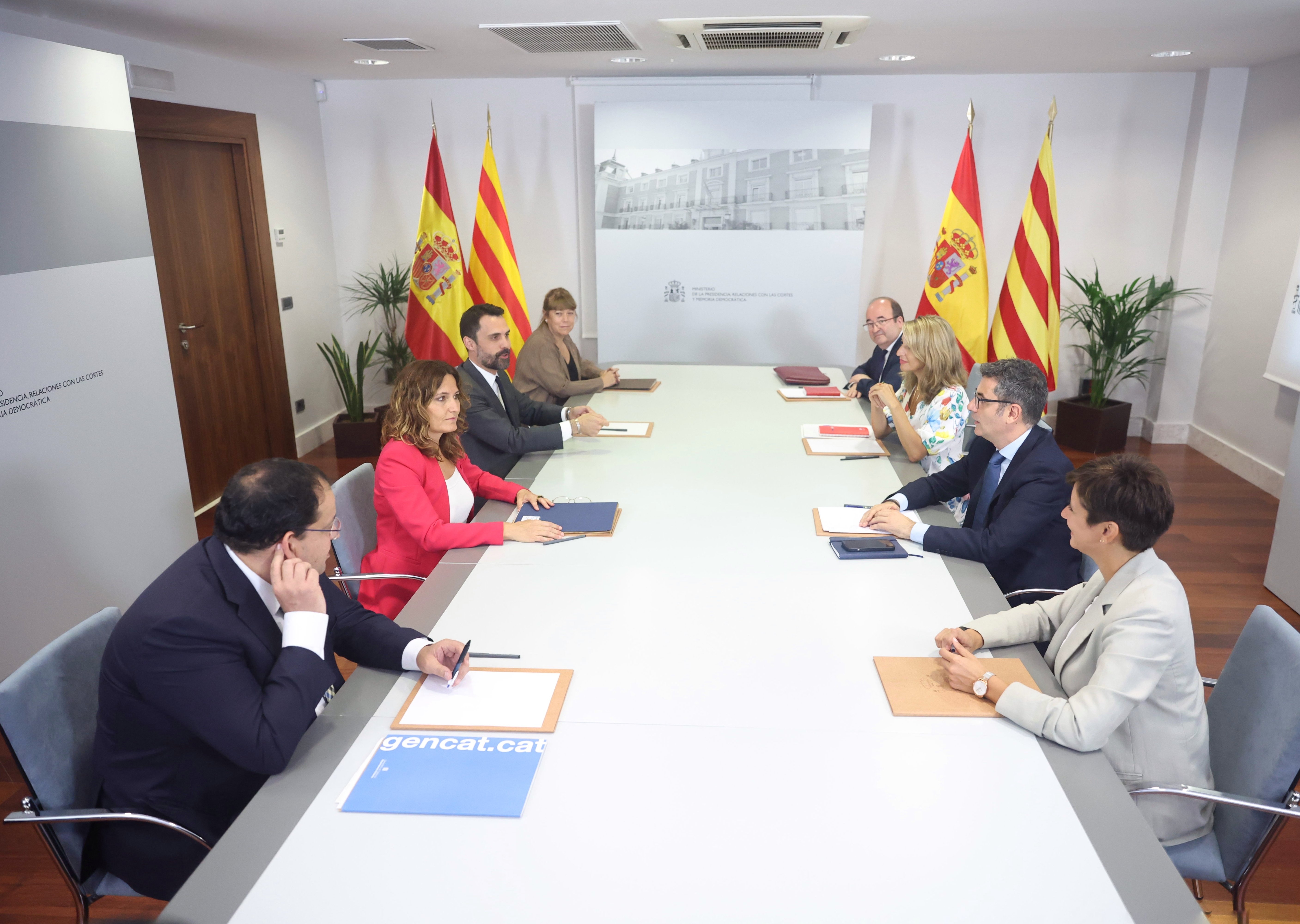There will be no dialogue table meeting any time soon. In the Spanish government palace, the Moncloa, they are certain that their political strategy with Catalonia is bearing fruit and assert that the dialogue between the central government and the Catalan executive "has already taken place". This is according to sources close to prime minister Pedro Sánchez, who are planning for a Spanish election year in which the Socialists (PSOE) can crow about the anti-crisis measures they have taken to combat the effects of the war in Ukraine. Thus, the executive might delay a new dialogue table meeting until after the municipal elections in May and not meet with the Catalan government until summer.
Those in the circles of the Spanish prime minister consider that the Catalan Republican Left (ERC), thanks to the Penal Code reform that it agreed with the PSOE - and which, this very Thursday has been definitively passed in the Senate - recognizes that the independence referendum of 1st October 2017 was a crime. It is also for this reason that the Spanish executive considers that the so-called Montenegro route proposed by ERC for a new self-determination vote only represents a danger for the Spanish right. "A referendum has no place in the Constitution", these same sources point out, although they will not close the door with the same firmness to a future consultation in Catalonia on the results of the dialogue table, something that ERC and the PSOE agreed on when they created the table in the deal that brought Sánchez to power in January 2020, paving the way for the negotiation mechanism to meet a grand total of three times in as many years.
In the same way, the Spanish government does not believe that the agreements that the PSOE has recently reached with ERC will translate into an electoral punishment. Nor does it show any concern over the result of this week's CIS opinion poll, which narrowed the distance between Sánchez and Feijóo, precisely at the time when the political debate has been focused on the repeal of sedition and the reform of misuse of funds. In addition, although the PP hopes to benefit from the institutional crisis, the Spanish executive considers that this is an issue that will benefit the PSOE. "People can see very clearly how the PP is behaving with the Constitutional Court," assert voices in the heart of the Spanish executive.
Likewise, the Moncloa maintains that it has been a good idea to work for "coexistence" and to "say yes" to Catalonia, since the Socialists consider that electorally this is much more beneficial than a repeated "no" to the demands of Catalans. On the other hand, the Sánchez government does want to promote "integrative and non-divisive projects", which, according to its thinking, would be one more reason for ruling out a self-determination referendum in Catalonia - something that, in any case, they have always refused to even discuss at the dialogue table. The PSOE-Unidas Podemos executive also affirms that the unilateralism of the independence movement is now in the past, and that currently in Catalonia "the Constitution is being complied with". It must be recalled that the Spanish PM himself affirmed this week in the Congress of Deputies that the independence process had "finished", supporting his argument on statements made by the political prisoner, now released, Jordi Sànchez.

